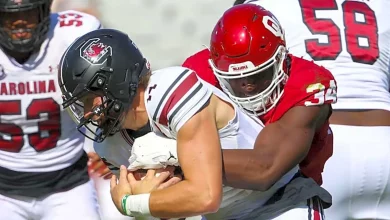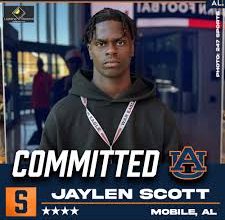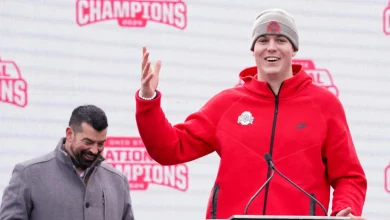‘The Cowboys Is a Dead End Job’— Former Bengals Star WR Rips Dallas’ Track Record and Owner Jerry Jones

The Dallas Cowboys have long been the subject of fascination in the world of professional sports. Known as “America’s Team,” the Cowboys have enjoyed an illustrious history full of triumphs, legendary players, and iconic moments. Yet, despite the fame and fortune associated with the franchise, the team has been unable to capture a Super Bowl victory since 1995, leaving many to question the team’s direction and future.
Recently, former Cincinnati Bengals star wide receiver Chad Johnson—often known for his outspoken personality—stirred up controversy by openly criticizing the Cowboys, calling the job a “dead-end job” under the ownership of Jerry Jones. In a sharp rebuke, Johnson expressed frustration over the Cowboys’ failure to live up to expectations and questioned Jones’ ability to lead the team back to the promised land of Super Bowl success. Johnson’s comments have reignited discussions about the Cowboys’ perennial struggles and the role of Jones in steering the franchise through turbulent waters.
In this article, we will explore Chad Johnson’s critique of the Dallas Cowboys, examine the team’s recent failures, and analyze Jerry Jones’ leadership in the context of the team’s historical underachievement. We will also look at how Johnson’s comments shed light on the larger issues plaguing the Cowboys, despite their continued financial success and cultural prominence.
Chad Johnson’s Critique of the Cowboys: A ‘Dead-End Job’
Chad Johnson, who had a standout career with the Cincinnati Bengals in the 2000s, has been a polarizing figure in the football world. Known for his brash personality and larger-than-life presence, Johnson has never been afraid to speak his mind, and his comments about the Dallas Cowboys are no exception. In a recent interview, Johnson went on the offensive, referring to the Cowboys’ head coach position as a “dead-end job,” citing the team’s long-standing inability to achieve significant postseason success under Jerry Jones’s leadership.
The Cowboys have consistently been one of the most high-profile teams in the NFL, thanks in part to the large personality of Jerry Jones, who has owned the team since 1989. Jones’ flair for the dramatic and his involvement in nearly every aspect of the team’s operations has made him a household name, but it has also led to criticism over the years. For all of the glitz and glamour that come with being the owner of such a storied franchise, the Cowboys have not reached the heights of success that many expect. In fact, they have failed to win a Super Bowl in the last 30 years, leaving many fans and former players frustrated with the lack of tangible results.
Johnson’s label of the Cowboys as a “dead-end job” stems from the team’s history of underachievement in the postseason. Despite having some of the most talented rosters in the NFL over the years, the Cowboys have continually fallen short of reaching the Super Bowl or even making deep playoff runs. The combination of a famed stadium, lucrative sponsorships, and widespread media attention has given the Cowboys the appearance of success, but this has not translated into championships or long-term dominance.
The Cowboys’ Postseason Struggles Under Jerry Jones
The issue at the heart of Chad Johnson’s criticism is the Cowboys’ persistent failure to achieve postseason glory under Jerry Jones’ ownership. Since Jones took over in 1989, the Cowboys have seen a series of high-profile coaches and talented rosters come and go, but they have been unable to win the ultimate prize—the Super Bowl.
The Cowboys’ last Super Bowl win came in 1995, during the tenure of head coach Jimmy Johnson. That victory marked the team’s third Super Bowl championship in just four seasons, with players like Troy Aikman, Emmitt Smith, and Michael Irvin leading the way. However, after Johnson’s controversial departure following the 1993 season, the Cowboys have struggled to replicate that level of success.
Over the years, Jones has cycled through a number of coaches, including Barry Switzer, Wade Phillips, Bill Parcells, Jason Garrett, and most recently, Mike McCarthy. While some of these coaches have enjoyed periods of success during the regular season, none have been able to deliver consistent playoff success or contend for the Super Bowl. The Cowboys have repeatedly made early playoff exits or failed to make the playoffs altogether, leading to mounting frustration among fans and players alike.
Despite a wealth of talent on the roster, including notable players like Tony Romo, Dak Prescott, Ezekiel Elliott, and Micah Parsons, the Cowboys have been unable to string together sustained postseason runs. Many attribute this inability to overcome postseason adversity to issues related to leadership, coaching decisions, and sometimes poor game management.
Chad Johnson’s remarks about the Cowboys’ head coach position being a “dead-end job” reflect the frustrations of many who believe that Jones’ involvement in team operations may be hindering the team’s ability to truly reach its potential. Johnson’s sentiment is that no matter how talented the team is, as long as the leadership remains stagnant and the expectations are not aligned with realistic results, the Cowboys will continue to fall short.
Jerry Jones: The Man Behind the Cowboys
Jerry Jones is both celebrated and criticized for his ownership style, which is unlike that of many other NFL owners. As one of the most influential figures in sports, Jones has made significant contributions to the NFL, both financially and culturally. His decision to purchase the Cowboys in 1989 for $140 million has proven to be one of the most successful investments in sports history. Under his ownership, the Cowboys’ worth has skyrocketed, and the team’s media visibility has become unparalleled.
Jones, however, is not just an owner in the traditional sense. He is an active participant in team operations and has a significant hand in decisions relating to the coaching staff, roster moves, and team strategies. While this hands-on approach has allowed Jones to shape the Cowboys’ identity, it has also led to criticism. Many believe that Jones’ meddling in football matters has created instability and inconsistency, especially when it comes to hiring coaches and building long-term team strategies.
One of the most significant aspects of Jones’ ownership is his role in firing and hiring head coaches. The most famous example of Jones’ interference is his decision to part ways with Jimmy Johnson, who had led the Cowboys to two Super Bowl victories in just three years. Many fans and analysts argue that Johnson’s departure marked the beginning of a downturn for the franchise. Since then, the Cowboys have had a revolving door of coaches, none of whom have been able to replicate Johnson’s success.
Jones’ high expectations and personal investment in the Cowboys are certainly factors that drive the franchise’s visibility and success in terms of revenue. However, his personal stake in team decisions has led to questions about whether he has been a hindrance to the team’s on-field success. For example, his high-profile relationship with coaches like Jason Garrett—who held the position for nearly a decade despite underwhelming results—has raised eyebrows.
Is the Dallas Cowboys Job a “Dead-End Job”?
Chad Johnson’s assertion that the Dallas Cowboys is a “dead-end job” stems from the team’s inability to break through in the postseason and win a Super Bowl. In modern NFL history, organizations that have struggled to win championships have faced criticism for a lack of strong leadership, long-term vision, and stability. Despite possessing top-tier talent and having access to unlimited resources, the Cowboys have been unable to translate that into sustained success in the postseason.
For some, the Cowboys job represents a challenging environment where expectations are impossibly high, and the pressure to deliver is constant. Given Jerry Jones’ hands-on approach to managing the team, it’s difficult for a coach to have full autonomy and implement their vision without interference. The constant turnover in head coaches, combined with the high expectations, could make the Cowboys head coach position seem like a career cul-de-sac for any coach who takes it on.
However, there are also those who would argue that coaching the Dallas Cowboys could still be a prestigious opportunity. The financial resources, the national spotlight, and the chance to work with an immensely talented roster are attractive prospects for any head coach. The reality is that while the team’s history has been filled with highs and lows, the right coach could still lead the Cowboys back to Super Bowl glory—if given the chance and the necessary support.
The Future of the Dallas Cowboys and Jerry Jones
The Cowboys’ future is uncertain as they continue to search for a formula that will lead them back to the Super Bowl. The team’s roster is undeniably talented, with young stars like Micah Parsons and CeeDee Lamb, but they still lack the consistency and leadership needed to succeed in the postseason.
As long as Jerry Jones is at the helm, the Cowboys will continue to be a team under the microscope. His influence on the team is unlikely to wane, but whether or not he can find a way to bring the team back to prominence remains to be seen. While the job of coaching the Cowboys may be seen by some as a “dead-end job,” it remains one of the most high-profile positions in sports, offering the potential for a coach to become a legend if they can finally deliver the Super Bowl victory the franchise so desperately craves.
For now, Chad Johnson’s comments serve as a sharp reminder of the Cowboys’ perennial struggles, and the need for the franchise to find a way to turn its vast potential into tangible success on the field. Only time will tell if Jerry Jones can find the answer or if the Cowboys will continue to fall short of their ultimate goal.









